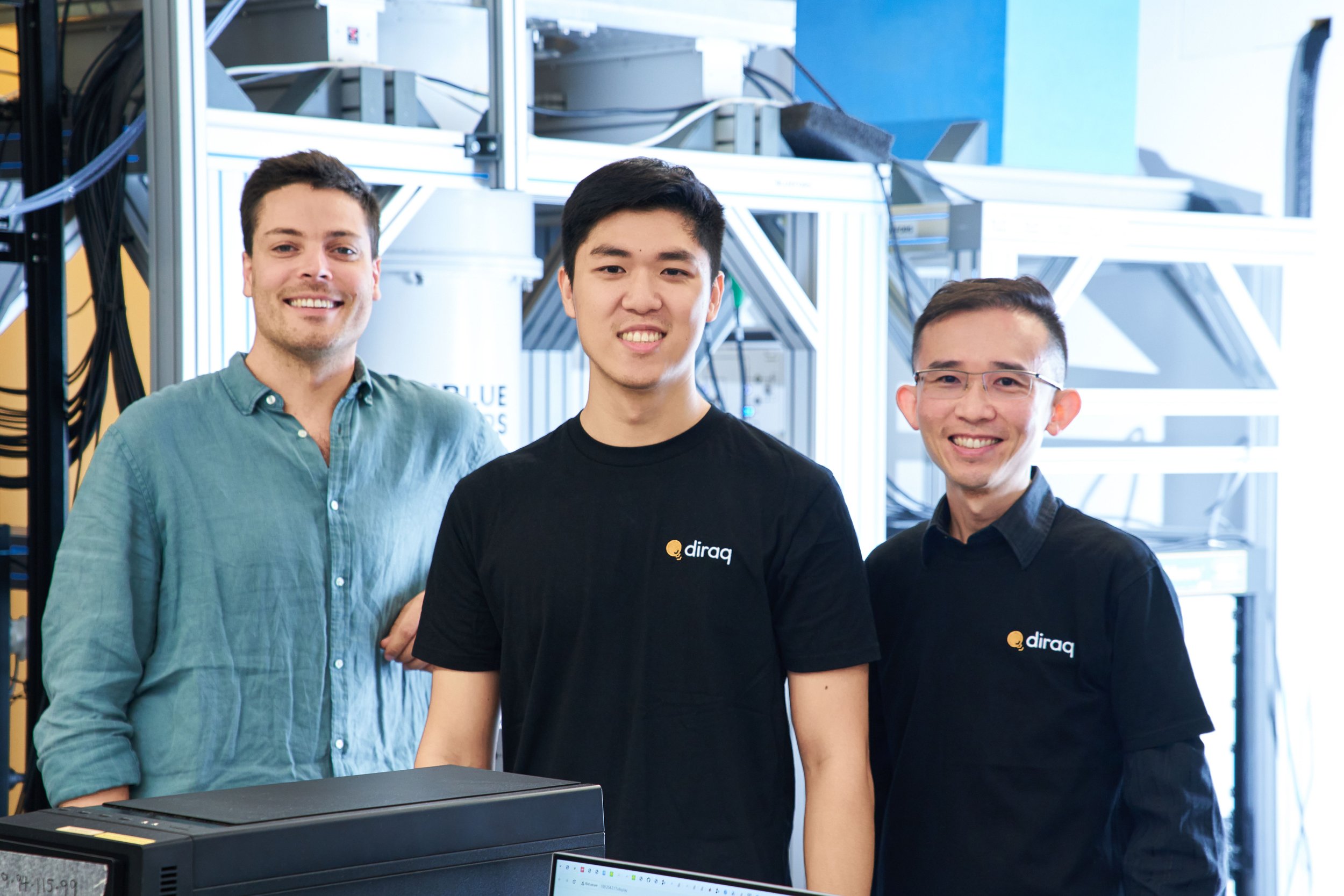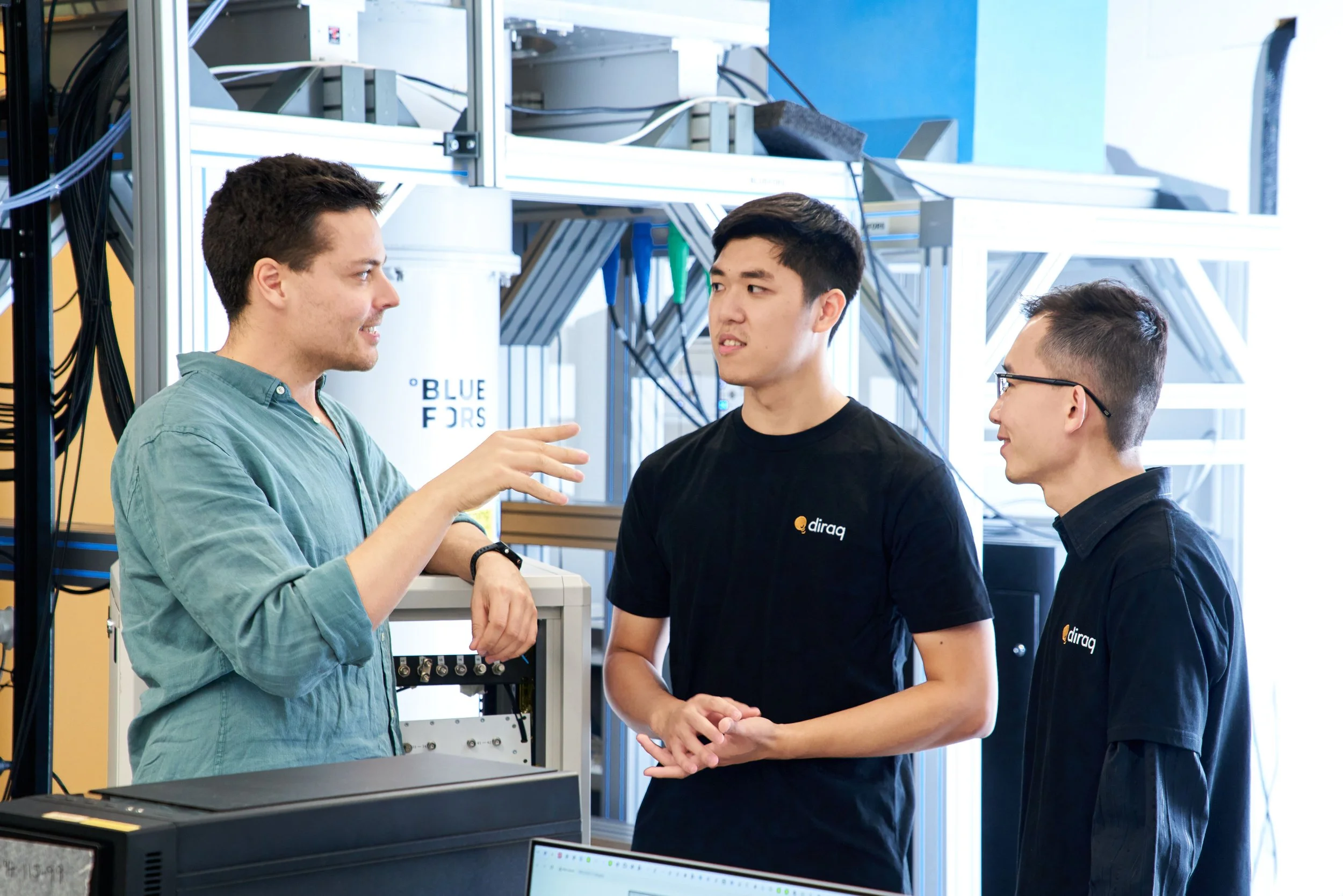Internship Story: Automating Qubit Design at Diraq
Dylan Liang, former intern and now Research Associate and PhD student at Diraq, shares key highlights from his internship experience with the Fabrication and Measurement teams at Diraq in the pioneering silicon spin qubit design automation field.
Diraq – a world leader in developing silicon-based CMOS quantum computers – is on a mission to deliver the world’s first full scale, fault tolerant quantum computers. Specifically, the Fabrication and Measurement teams at Diraq are working towards developing software to facilitate large-scale manufacturing of silicon quantum dot devices, with the support of their new intern.
As a part of my internship at Diraq, I worked under the supervision of senior Engineers in the Fabrication and Measurement team, Dr. Kok Wai Chan and Dr. Nard Dumoulin Stuyck, to pioneer a project on automating the design of silicon-based quantum processors.
“In the small-scale device design aspect, it is still possible to manually design the quantum processor using Computer Aided Design (CAD) software for production in the cleanroom.” commented Dr. Kok Wai Chan, Fabrication and Process Engineer at Diraq. “But the design effort becomes enormously exhausting as we scale-up to hundreds and thousands of qubits to realise a universal quantum processor.”
Automation of qubit design requires a high level of expertise in programming and takes a long time to develop. This was not something that can be finished within the time frame of an internship. My role was focused on laying the foundation for future project development, an essential step in paving the way for future success. My supervisors were always supportive, providing guidance whenever I needed help. They were very approachable and encouraging. Despite the numerous difficulties and challenges I came across, I was always able to push through in the end and make significant and meaningful progress. It was a very pleasant learning experience.
Coming from a background of Electrical/Quantum Engineering, I found the project was aligned with my undergraduate studies at UNSW. It is very interesting to apply what I’ve learned in university to real-world problems, not to mention taking part of developing the next-gen technology while doing so! Although, I’ve never been so involved in a long-term programming project in a professional setting. Programming was not a major focus of my degree, so this is a new professional experience for me.
Through working closely with the team, I expanded my knowledge on the development of quantum computers, from theory building to fabrication and experiments. I came to see the immense potentials of quantum computers in solving problems impossible for classical computers and make a positive impact in medicine, finance, etc.
Working in an industrial project taught me valuable skills such as project management, presentation and effective communications skills. On top of that, I learned so much from programming in a professional setting, which I believe will prove invaluable to my future career.
Inspired by my experience working with the Diraq team, I developed a passion for Diraq’s vision and decided to dedicate my effort to the development of silicon quantum computing. Since this internship, I have commenced a PhD at UNSW and now undertaking quantum computing research as a Research Associate at Diraq.
From left: Dr. Nard Dumoulin Stuyck, Dylan Liang, Dr. Kok Wai Chan


